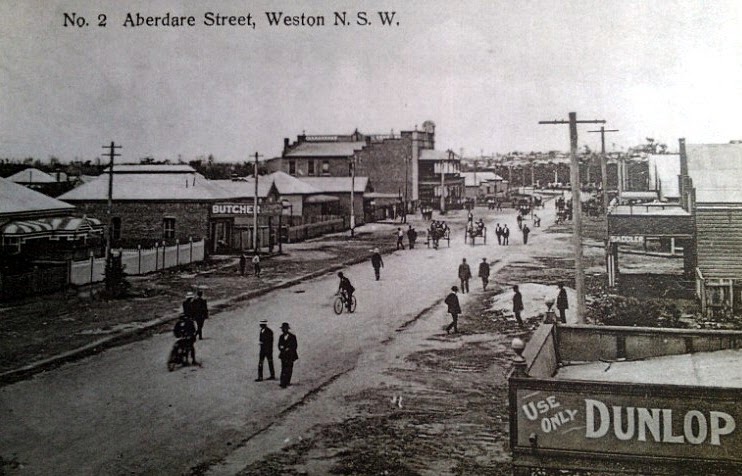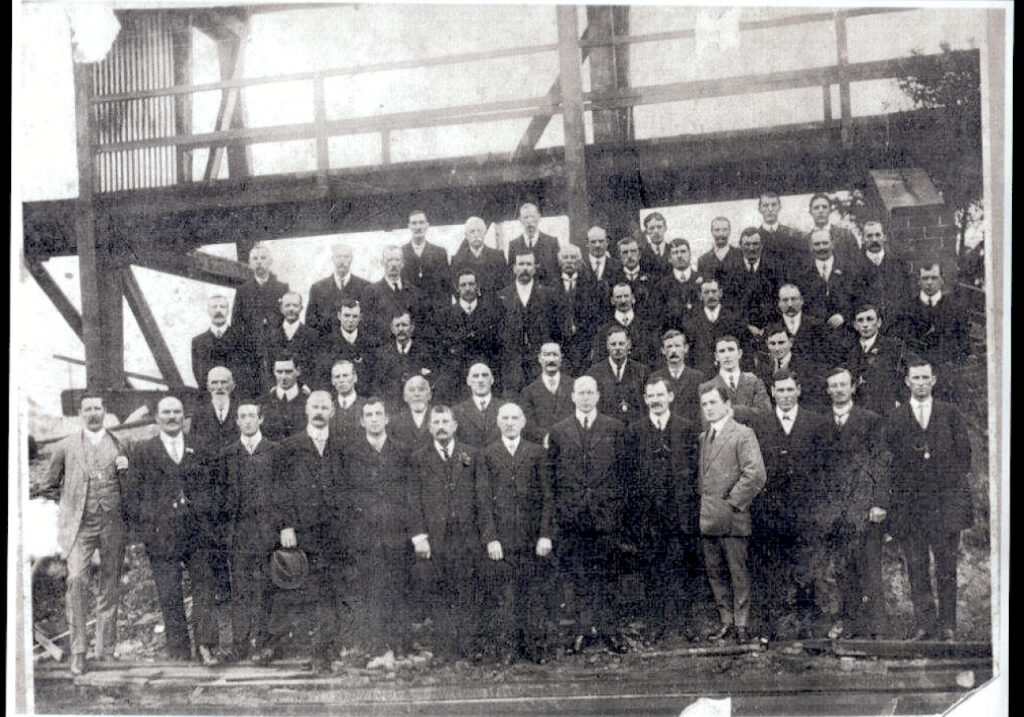The towns on the South Maitland Coalfields of NSW have a lot of associations between various mining regions of the United Kingdom. It is not surprising that when miners emigrated from Britain, they found themselves living and working with fellow miners from their own areas of England, Scotland and Wales. One town might have a preponderance of families from the Welsh Valleys, another with Yorkshireman and yet another with Scots from Lanarkshire. The town I grew up in was populated by a lot of Geordies.
Northumberland
The County of Northumberland is located in the North East of England and its main city is Newcastle upon Tyne. The names of many other towns in Northumberland were also transported to the Hunter Valley. These towns include Jesmond, Morpeth, Hexham and Gateshead. It can be strangely familiar but also a bit disconcerting to be in Newcastle upon Tyne and see road signs with familiar names, but the directions and distances don’t seem right. There is a joke in the lower Hunter that goes ‘how can you walk from Newcastle to Gateshead in less than five minutes?’ The answer of course is move to England.
Weston
The town where I grew up was named after an early settler, James Weston, a convict sent to Australia following the invasion by the British in the late 18th Century. The original owners of the land were either the Wonoruah Nation or the Awabakal Nation (the area around Weston is borderlands for these two nations as well as the Darkinjung Nation to the south). Perhaps there was some synergy that attracted so many people from Northumberland that is also a borderland to this piece of Australia. The town of Weston was established following the discovery of coal and the expansion of coal mining from Newcastle into the Lower Hunter. I have strong memories from my childhood of hearing Geordie accents calling out ‘shoot man’ at the football. It is no accident that the colours of the Weston football club are the same black and white candy stripes of ‘The Toon’ or Newcastle United in the English Premier League.

The Geordie Log
The Geordie Log was a wooden bench in the town on what was then known as Aberdare Street and is now called Cessnock Road. The log was close to the intersection with Station Street, the town’s main shopping street and diagonally opposite the Criterion Hotel (one of the town’s two pubs). The Geordie Log sat up against what was then a butcher’s shop and is now a Chinese restaurant close to the little park containing the town’s war memorial. When I was a small boy there would quite often be several old men sitting on the bench, talking, joking and gossiping in accents that I couldn’t understand. They were all retired miners, nearly all Geordies from Northumberland. Most of the Geordies would have worked at one of the two Hebburn pits that, themselves, were named after the town not far from South Shields that was an important mining town in Northumberland.

Geordies
This is a short poem that is an elegy for something that has now passed. Over time the coal mines closed, and mining moved further up the valley to destroy good country and place an ugly scar on the land. In coming years, wiser heads will prevail, and these mines too will hopefully close.
The Jummas, George and Harold’s are
gone from their bench near the Butcher’s Shop,
with their brown baggy pants,
their collarless shirts and braces,
their flat caps, black beer, greyhound dogs and whippets,
and their strange way of talking from Tyne and Wear,
from Throckley, Ryton, Jarrow,
Cleadon, Blaydon and Whitley Bay.
These men, with missing fingers to a man,
stooped backs and hacking coughs,
with walking sticks and rheumy eyes,
Are gone forever from the black coal face
and splintering, splitting timber props,
the rattling cage and Davy Lamps,
the firedamp, heat and water,
Gone from the lodge, their last stump paid.
The pigeon lofts are empty now of racing birds,
the tubas, cornets and flugelhorns are tarnished
in their mildewed leather cases, sheet music
for the Miners’ Hymn is yellowed, crackling faded
in some brown school port that’s lost, forgotten.
And the mines are gone and the butcher’s shop
and the bench has splintered into memories
of the Jummas, George and Harolds
and the Tyneside accents now just echoes in the wind.

Great memories of a harder time. Great to see modern coal barons would send Children and ponies to the face to save a few dollars. Governments that support this industry obviously haven’t worked a day doing this back breaking, soul destroying work. Respect for all coal miners. Respect for their community. No respect for Coal Barons and their Government Stooges. Great poem Comrade 👌 👏 ❤.
Loved it. Read it aloud. Seemed necessary. Thank you for including the photograph. Brings it all to life
great read, Glenn… Top effort re. poem